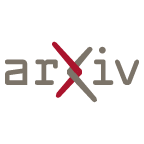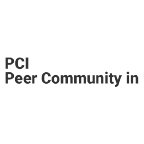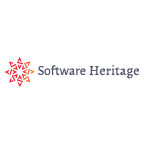- All
- Computing Centres
- Consortia & Associations
- Open Platforms
- Research Infrastructures
- Scientific Information Operators

arXiv
arXiv
Created in 1991, arXiv is the first preprint server for the communities of physics researchers. It has gradually expanded to other scientific fields such as mathematics, computer science and quantitative biology.
It has since become a reference archive for the dissemination of the work of researchers in these desciplines.
HAL was developed by its founders on the model of arXiv. Since 2002, a CCSD-Cornell University agreement has enabled the transfer of a HAL deposit to arXiv for any researcher in the disciplines covered by arXiv.
Read more

Huma-Num
Huma-Num
Huma-Num aims at supporting research communities by providing services, assessment and tools on digital research data. To perform its missions, the TGIR Huma-Num bases its activities on a innovative form of organization that combines human (collective consultation through Huma-Num’s consortia, which are groups of researchers and engineers, funded by Huma-Num, working on common areas of interest) and technological resources (sustainable digital services) on a national and European scale.
Huma-Num provides Isidore, a search engine for HSS resources and Nakala, a data repository.
Several projects have associated the CCSD and Huma-Num: Isidore, MediHAL and, more recently, the POC of the European project WP6 of EOSC-Pillar.
Read more

OpenEdition
OpenEdition
OpenEdition is a comprehensive digital infrastructure for academic communication in the humanities and social sciences. It brings together four complementary platforms focused respectively on:
- journals – OpenEdition Journals,
- book series – OpenEdition Books,
- research blogs – Hypotheses, and
- academic events – Calenda.
The CCSD and OpenEdition are partners for Equipex projects, HALiance and Commons.
Read more

Peer Community In (PCI)
Peer Community In (PCI)
PCI is a non-profit scientific organization that aims to create thematic communities of researchers reviewing and recommending, for free, articles posted on preprint servers and other open-access repositories. These thematic communities are entitled Peer Community in X, e.g. Peer Community in Evolutionary Biology, and PCI Ecology.
The CCSD and PCI are associated for the Halowin project.
Read more

recherche.data.gouv
recherche.data.gouv
Inaugurated in 2022 by the French Minister of Higher Education and Research, Recherche Data Gouv is the national ecosystem dedicated to managing, sharing and opening up French research data.
It relies on
- a central platform for the preservation, publication and discovery of datasets, comprising a repository, a catalog and a web portal;
- and on a national federation of competence centers to support research teams in the management and dissemination of their data, based on geographical and thematic proximity.
Read more

RePEc (Research Papers in Economics)
RePEc (Research Papers in Economics)
RePEc is a collaborative platform which aims to enhance the diffusion of research in economics and related disciplines. At the core of the project is a bibliographic database that has become a reference in this discipline. RePEc is supplied and maintened by volunteers from over 100 countries.
The CCSD has been supplying RePEc with data since 2007: HAL metadata in economics feed the base and supplement 14 series created by French laboratories and institutions.
Read more

Software Heritage
Software Heritage
Created by Inria in 2015, Software Heritage aims to collect, preserve and share all softwares publicly available in source code form, with the objective of bulding an common and shared infrastructure at the service of industry, research, culture and society as a whole.
The opening of HAL repository to softwares is the result of a CCSD-Inria-SWH partnership. As of 2018, HAL and Software Heritage have been interconnected: when the researchers deposits the source code of his software in HAL, it is automatically transferred to Software Heritage; the HAL deposit is then updated with the archive identifier (SWHid).
Read more